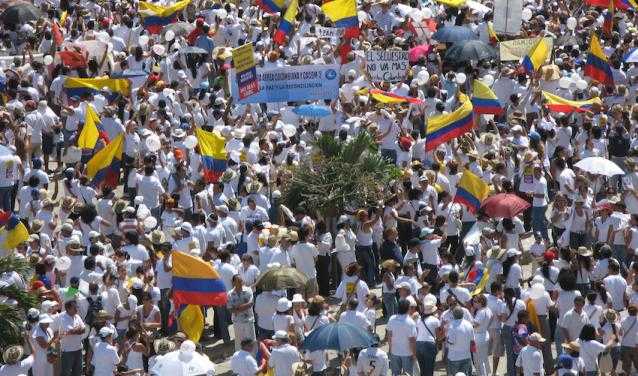Home>Why Colombia voted “No”

11.10.2016
Why Colombia voted “No”
On October 2, the peace agreement reached between the Colombian government and the Revolutionary Armed Forces of Colombia (FARC) was rejected by popular referendum. The prospect of seeing four years of negotiations go up in smoke has sparked stupefaction and incomprehension. How can the country run the risk of returning to a war that has caused the death of more than 200,000 people and the forced migration of 5.7 million others?
The reasons for voting “No”
The Colombians who voted “No” felt that the FARC, despite proven war crimes, was going to benefit from excessively favourable treatment bordering on impunity. They were outraged at the idea of seeing some of the FARC become members of parliament and perhaps one day governing the country. They also disapproved of the land restitution procedures included in the agreement to meet the guerrilla movement’s longstanding demand for redistributive justice. Finally, they feared the peace process would have to be funded by increased taxes, while the guerrilla forces have accumulated colossal reserves of cash through drug trafficking.
Former president Álvaro Uribe (2002-2010) led a very efficient campaign for the “No” vote, arguing that he defended peace but not the agreement negotiated in Havana with the FARC. He pointedly drew a parallel with the deal he struck with paramilitary groups during his time in office that included prison for those who had committed crimes.
The country has emerged from the referendum deeply divided. Just over 50,000 votes separate the two camps out of a total of 13 million voters.
The Colombians that voted “No” were infuriated and anxious, but at least they, along with those who voted “yes”, expressed their opinion. This was not the case for a large majority of Colombians; 62.8 percent of voters abstained.
How can we make sense of this Colombia that did not bother to go to the polls? What can explain the fact that 22 million Colombians paid so little attention to a referendum that is likely to dictate their future?
Apathy towards democracy
Beyond the yes-no debate, the referendum calls into question Colombian democracy itself. Sixty years ago, Colombia put an end to a period of violence with a military dictatorship, followed in 1957 by a power-sharing agreement. Between 1958 and 1974, the “National Front” regime stabilised democracy on the basis of exclusion; two parties took turns governing while leftist forces took up arms to defend their ideas.
Today, Colombia's political class is just as isolated as it was back in the National Front days. Both of the political leaders to have held the presidency in the last fifteen years urged Colombians to vote, admittedly for opposite options, with no effect. The break-up between the “real” country and the politicial sphere is complete. Even the Catholic Church's call for a “vote of conscience” went unheard.
Peace building in Colombia will not be possible without a revitalization of democracy, and that will require awareness-raising and education over the long term.
The lesson is also valid for the guerrilla movement. What is at stake is its capacity to integrate the political arena without imitating the much-hated way politicians operate.
Olivier Dabène, professor of political science at Sciences Po